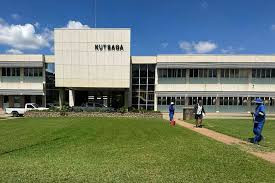
KUTSAGA has donated Generation 4 seed potatoes worth US$16 900 to 13 irrigated gardens in Zaka, Chivi and Buhera districts to improve food and nutrition security in vulnerable communities.
The donation, covering 6,5 hectares, was made in partnership with Care Zimbabwe and is aimed at supporting table potato production in drought-prone areas.
Kutsaga chief executive officer, Frank Magama, said the organisation was committed to national development through applied agricultural research and community support.
These potatoes are disease-free, early-maturing and high-yielding varieties that are ideal for table production. We believe this partnership with Care Zimbabwe will translate research into tangible benefits for rural communities,” he said.
Magama said the initiative demonstrated Kutsaga’s focus on fostering public-private partnerships to strengthen the agricultural value chain and build resilience in rural communities.
“This is more than just a donation; it is an investment in rural transformation, resilience building and sustainable agriculture,” he said.
The seed potatoes, produced under strict phytosanitary conditions, are known for their high productivity and resistance to disease. Their distribution to grassroots farmers is expected to reduce reliance on imported seed and support the country’s import substitution policy.
Care Zimbabwe strategic partnerships and private sector engagement manager Rumbidzai Moyo said the donation would empower smallholder farmers, particularly women and youths.
- Kutsaga, HIT partner to tackle climate change
- Kutsaga rebranding pays off
- Coal facility excites tobacco farmers
- New complex diseases threaten tobacco
Keep Reading
“Access to clean seed is often the biggest barrier for rural farmers. This support from Kutsaga is strategic and timely. It will promote nutrition-sensitive agriculture and help communities to break the cycle of hunger and poverty,” she said.
The programme also supports key government strategies, including the Horticulture Recovery and Growth Plan and the Agriculture and Food Systems Transformation Strategy, which emphasise innovation, decentralisation and community participation.










